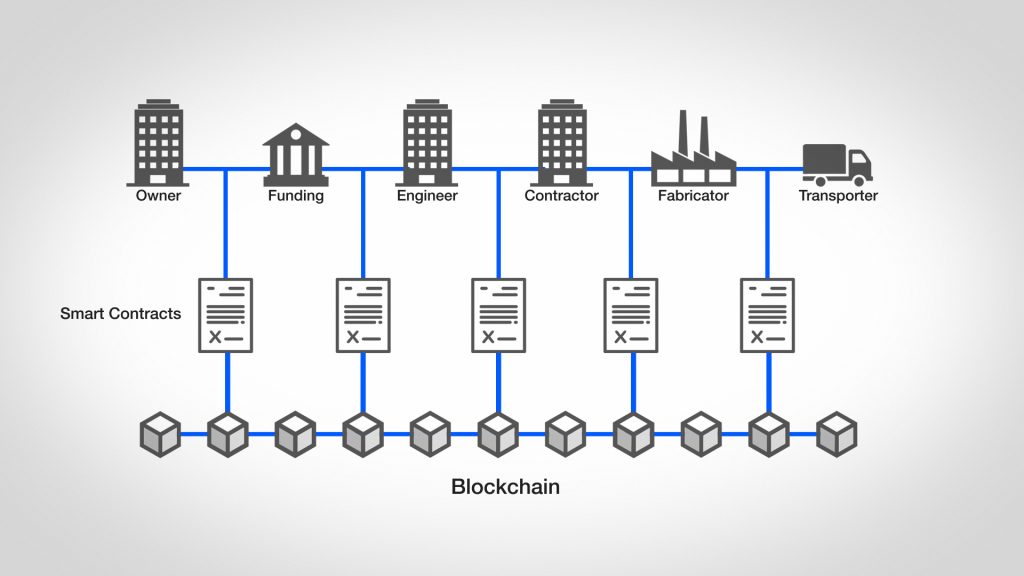Blockchain and distributed ledger technology has the potential to improve building construction in several ways:
• Asset Tokenization: Some projects explore the idea of tokenizing real estate assets, including buildings, which can enable fractional ownership and increase liquidity in the real estate market.
• Supply chain management: Blockchain can be used to track building materials throughout the supply chain, from the manufacturer to the construction site. This can increase transparency and traceability, reduce fraud and counterfeiting, and improve quality control.
• Payment processing: Blockchain can be used to automate payment processing for construction projects, allowing for faster and more efficient payments that are verified through the blockchain. This can reduce payment disputes and delays and increase the speed of project completion.
• Smart contracts: Smart contracts can be used in building construction to automatically execute contractual obligations, such as making payments or releasing building plans when certain conditions are met. This can reduce the need for intermediaries and improve the efficiency of the construction process.
• Building maintenance and management: Blockchain can be used to create a decentralized database of building maintenance and management records, such as warranties, repair records, and energy usage. This can make it easier for building owners and managers to track and manage building maintenance, reducing downtime and costs.
• Decentralized project management: Blockchain can be used to create a decentralized platform for project management, allowing all stakeholders to have access to the same information and reducing the risk of miscommunication and errors.
Emergent vendors in this domain:
ImmVRse is a blockchain-based platform that is being developed to help with the design and construction of educational facilities. The platform uses virtual reality to create 3D models of buildings, which can be used to identify potential design flaws and optimize construction plans. The platform also uses blockchain to track project progress, reduce disputes, and facilitate payments.
Solar DAO is a blockchain-based platform that is being developed to fund renewable energy projects, including solar energy systems for educational facilities. The platform allows investors to fund solar energy projects and receive dividends based on the amount of energy generated. The platform also uses blockchain to track project progress and verify energy generation.
Blockcerts is a blockchain-based platform that is being used for digital credentialing in education. The platform allows educational institutions to issue digital certificates and diplomas that are verified through the blockchain, making them more secure and tamper-proof.
Widespread adoption of these technologies will require collaboration and standardization within the industry.
How Blockchain Will Change Construction
Don Tapscott – Ricardo Viana Vargas
Blockchain technology is among the most disruptive forces of the past decade. Its power to record, enable, and secure huge numbers and varieties of transactions raises an intriguing question: Can the same distributed ledger technology that powers bitcoin also enable better execution of strategic projects in a conservative sector like construction, involving large teams of contractors and subcontractors and an abundance of building codes, safety regulations, and standards?
“Increasingly, we are thinking more carefully about when and where we need to compete and what can we share and collaborate on,” said David Bowcott, global director of growth, innovation, and insight in Aon’s global construction and infrastructure group. Using blockchain to automate the contractual processes and paperwork underpinning these complex projects could save money, free up valuable resources, and speed up project delivery. (Unless otherwise noted, quotes are from interviews we conducted as part of our research.)
Bibliography
On-Site Construction Quality Inspection Using Blockchain and Smart Contracts











